Farm Boy 牧場の少年 from Final Fantasy VII ファイナルファンタジーVII with sheet music
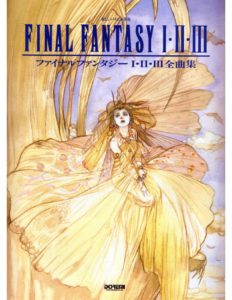
Sheet Music download here.
Music of the Final Fantasy VII series
Final Fantasy VII is a role-playing video game developed by Square (now Square Enix) and published by Sony Computer Entertainment as the seventh installment in the Final Fantasy series. Released in 1997, the game sparked the release of a collection of media centered on the game entitled the Compilation of Final Fantasy VII.
The music of the Final Fantasy VII series includes not only the soundtrack to the original game and its associated albums, but also the soundtracks and music albums released for the other titles in the collection.
The first album produced was Final Fantasy VII Original Soundtrack, a compilation of all the music in the game. It was released as a soundtrack album on four CDs by DigiCube in 1997. A selection of tracks from the album was released in the single-disc Reunion Tracks by DigiCube the same year. Piano Collections Final Fantasy VII, an album featuring piano arrangements of pieces from the soundtrack, was released in 2003 by DigiCube, and Square Enix began reprinting all three albums in 2004. To date, these are the only released albums based on the original game’s soundtrack, and were solely composed by regular series composer Nobuo Uematsu; his role for the majority of subsequent albums has been filled by Masashi Hamauzu and Takeharu Ishimoto.
The Compilation of Final Fantasy VII began eight years after the release of Final Fantasy VII with the release of the animated film sequel Advent Children in 2005. The soundtracks for each of the titles in the collection are included in an album, starting with the album release of the soundtrack to Advent Children that year. The following year, Nippon Crown released a soundtrack album to correspond with the video game Dirge of Cerberus, while Square Enix launched a download-only collection of music from the multiplayer mode of the game, which was only released in Japan. After the launch of the game Crisis Core in 2007, Warner Music Japan produced the title’s soundtrack. The latest album in the collection, Before Crisis: Final Fantasy VII & Last Order: Final Fantasy VII Original Soundtrack, was released by Square Enix the same year as a combined soundtrack album for the game Before Crisis and the animated movie Last Order.
The original music received highly positive reviews from critics, who found many of the tunes to be memorable and noted the emotional intensity of several of the tracks. The reception for the other albums has been mixed, with reactions ranging from enthusiastic praise to disappointment. Several pieces from the soundtrack, particularly “One-Winged Angel” and “Aeris’ Theme”, remain popular and have been performed numerous times in orchestral concert series such as Dear Friends: Music from Final Fantasy and Tour de Japon: Music from Final Fantasy. Music from the Original Soundtrack has been included in arranged albums and compilations by Square as well as outside groups.
Browse in the Library:
| Artist or Composer / Score name | Cover | List of Contents |
|---|---|---|
| Andrea Morricone – Nuovo Cinema Paradiso – Love Theme |
|
|
| Andrea Vanzo Autumn Intro |
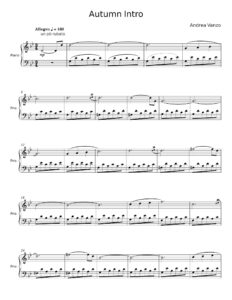 |
|
| Andrea Vanzo Les Madeleines |
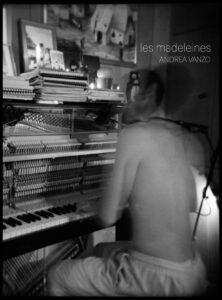 |
|
| Andrea Vanzo Spring |
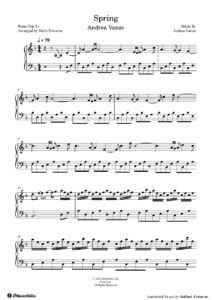 |
|
| Andrea Vanzo Valzer d’Inverno |
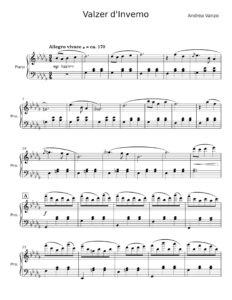 |
|
| Andrés Segovia Classic Album For Guitar Volume 2 |
 |
Andrés Segovia Classic Album For Guitar Volume 2 |
| Andrés Segovia Classic Album For Guitar Volumes 1 to14 |
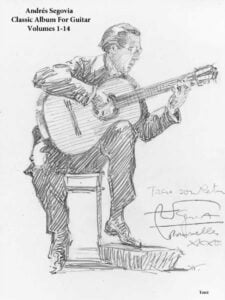 |
Andrés Segovia Classic Album For Guitar Volumes 1 to14Andrés Segovia Classic Album For Guitar Volume 2 |
| Andres Segovia Collection Pieces For Solo Guitar |
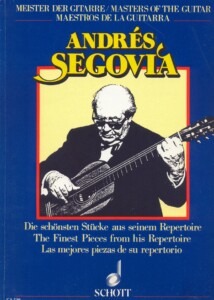 |
Andres Segovia Collection Pieces For Solo Guitar |
| Andres Segovia Obras Para Guitarra Vol 1 Preludios Y Estudios |
 |
Andres Segovia Obras Para Guitarra Vol 1 Preludios Y Estudios |
| Andres Segovia Obras Para Guitarra Vol 2 23 Canciones Populares Del Mundo |
 |
Andres Segovia Obras Para Guitarra Vol 2 23 Canciones Populares Del Mundo |
| Andres Segovia- Transcripciones Obras Para Guitarra Vol 3 |
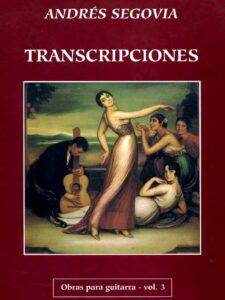 |
Andres Segovia- Transcripciones Obras Para Guitarra Vol 3 |
| Andrew Hill 21 Piano Compositions |
 |
|
| Andrew Lloyd Webber Sunset Boulevard (Revised Broadway Version) Piano & Vocal Score |
 |
|
| Andrew Lloyd Webber The Music Of The Night |
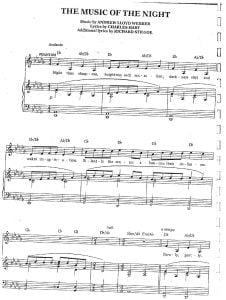 |
|
| Andrew Lloyd Webber Think of me (The Phantom of the Opera) | Andrew Lloyd Webber Think Of Me | |
| Andrew Lloyd Webber – All I Ask of You (The Phantom of the Opera) |
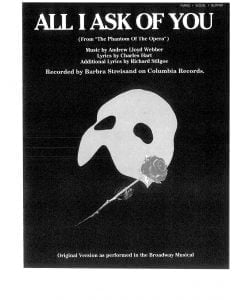 |
|
| Andrew Lloyd Webber – Angel Of Music (Piano, Vocal, Guitar chords) | Andrew Lloyd Webber – Angel Of Music (Piano, Vocal, Guitar chords) | |
| Andrew Lloyd Webber – CATS (Piano & Vocal score) |
 |
Andrew Lloyd Webber – CATS (Piano & Vocal score) |
| Andrew Lloyd Webber – Jesus Christ Superstar (Musical Excerpts Complete Libretto) Lyrics by Tim Rice |
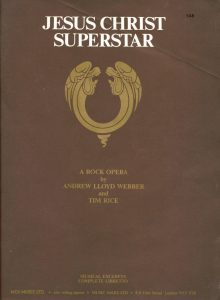 |
 |
| Andrew Lloyd Webber – Joseph And The Amazing Technicolor Dreamcoat The Musical Full Score |
 |
|
| Andrew Lloyd Webber – Joseph And The Amazing Technicolor Dreamcoat The Musical Vocal Selections |
 |
Andrew Lloyd Webber – Joseph And The Amazing Technicolor Dreamcoat The Musical Vocal Selections |
| Andrew Lloyd Webber – Love Never Dies (Piano Book) |
 |
Andrew Lloyd Weber – Love Never Dies (Piano Book) |
| Andrew Lloyd Webber – Love Never Dies Full Vocal Score (Andrew Lloyd Webber) |
 |
Love Never Dies Full Vocal Score |
| Andrew Lloyd Webber – Memory (from CATS) Piano Vocal with lyrics |
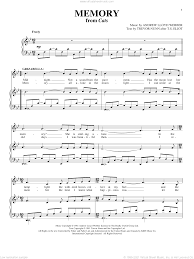 |
|
| Andrew Lloyd Webber – Requiem (the musical) Piano Vocal Score |
 |
|
| Andrew Lloyd Webber – School of Rock |
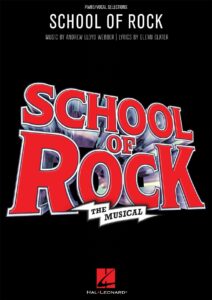 |
Andrew Lloyd Webber – School of Rock |
| Andrew Lloyd Webber – The Phantom Of The Opera | ||
| Andrew Lloyd Webber – Unmasked A Memoir (Book) |
 |
|
| Andrew Lloyd Webber – Unmasked The Platinum Collection |
 |
Andrew Lloyd Webber – Unmasked The Platinum Collection |
| Andrew Lloyd Webber “By Jeeves”, the musical |
 |
|
| Andrew Lloyd Webber Anthology |
 |
Webber, Andrew Lloyd – Antholog |
| Andrew Lloyd Webber Jesus Christ Superstar Tim Rice (Deutsche Texte) | Andrew Lloyd Webber Jesus Christ Superstar Tim Rice (Deutsche Texte) | |
| Andrew Lloyd Webber Masquerade from The Phantom of the Opera for Guitar TABS | Andrew Lloyd Webber Masquerade from The Phantom of the Opera for Guitar TABS | |
| Andrew Lloyd Webber Memory (from Cats) for Guitar TABS | Andrew Lloyd Webber Memory (from Cats) for Guitar TABS | |
| Andrew Lloyd Webber Pro Vocal Womens Edition |
 |
Andrew Lloyd Webber Pro Vocal Womens Edition |
| Andrew Lloyd Webber Sheet Music Collection, The – Andrew Lloyd Webber sheet music |
 |
Andrew Lloyd Webber Sheet Music Collection, The – Andrew Lloyd Webber sheet music |
| Andrew Lloyd Webber The Phantom of the Opera for Guitar TABS | Andrew Lloyd Webber The Phantom of the Opera for Guitar TABS | |
| Andrew Lloyd WebberJesus Christ Superstar (Broadway) |
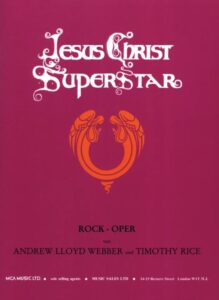 |
Andrew Lloyd Webber Jesus Christ Superstar (Broadway) |
| Andrew Lloyd WebberThe Phantom of the Opera (Piano Vocal & Guitar) Songbook |
 |
 |
| Androgyne (Mario Leblanc) | ||
| Andy Timmons Anthology |
 |
|
| Andy Jaffe – Jazz Harmony |
 |
Andy Jaffe – Jazz Harmony |
| Andy Laverne – Tons Of Runs For The Contemporary Pianist |
 |
andy laverne tons of runs contemporary pianist |
| Andy LaVerne – Vol. 85 Tunes You Thought You Knew | Andy LaVerne sheet music | |
| Andy Mckee Joyland (Songbook) (Andy Mckee) Guitar TAB |
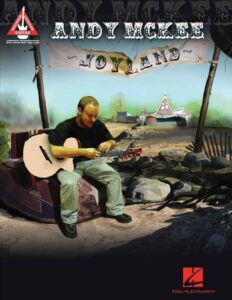 |
Andy Mckee Joyland (Songbook) (Andy Mckee) Guitar TAB |
| Angeles Negros Y Volveré (Alaian Barrière) |
 |
|
| ANGELO BADALAMENTI – (Twin peaks) – Twin Peaks theme easy piano solo | ANGELO BADALAMENTI – (Twin peaks) – Twin Peaks theme | Badalamenti Angelo – Twin Peaks |
| Angelo Badalamenti – Twin Peaks – Love Theme easy piano solo | Badalamenti, Angelo – Twin Peaks – Love Theme | Angelo Badalamenti – Twin Peaks (book) |
| Angelo Badalamenti – Twin Peaks (songbook the music of Twin Peaks) |
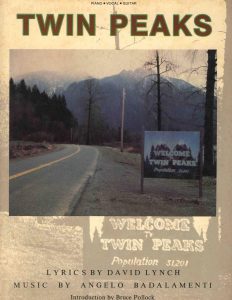 |
Angelo Badalamenti – Twin Peaks (book) |
| Angelo Badalamenti – Twin Peaks Theme (Instrumental) (Musescore File).mscz | ||
| Angelo Badalamenti Twin Peaks – Love Theme (Laura Palmer’s Theme) | Twin Peaks -Love Theme | |
| Angra Rebirth Guitar Songbook |
 |
|
| Angry Birds Theme Song (Piano) |
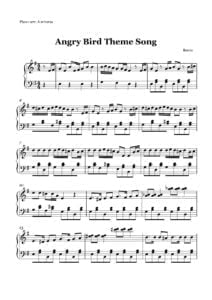 |
|
| Animal Crossing Christmas Eve |
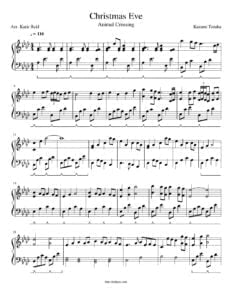 |
|
| Animal Crossing – Christmas Eve (Musescore File).mscz | ||
| Animal Crossing New Horizons – Welcome Horizons Main Theme |
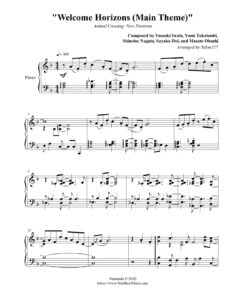 |
|
| Animals – The House Of The Rising Sun | The Animals – House Of The Rising Sun | |
| Animation Collection, Music From The Movies The (Solo Piano) |
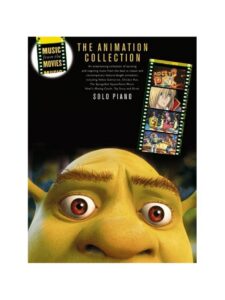 |
Animation Collection, Music From The Movies The (Solo Piano) |
| Anime Music Collection |
 |
Anime Collection |
| Anime Sheet Music Tsubasa Chronicle |
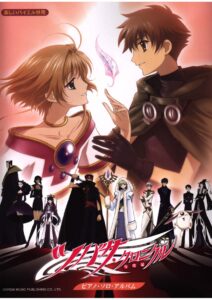 |
Anime Sheet Music Tsubasa Chronicle |
| Anna And The King – How Can I Not Love You – Enriquez Joy | ||
| Anna And The King – How Can I Not Love You – Joy Enriquez | Anna And The King – How Can I Not Love You – Enriquez Joy | |
| Anna Karenina 2012 – Curtain (Dario Marianelli) | ||
| Anna Karenina 2012 – Dance with me (Dario Marianelli) | ||
| Anna Karenina 2012 – I Understood Something (Dario Marianelli) | ||
| Anna Karenina 2012 – Kitty’s Debut (Dario Marianelli) | ||
| Anna Karenina 2012 – Ouverture (Dario Marianelli) | ||
| Anna Karenina 2012 – Ouverture (easier version) | ||
| Anna Karenina 2012 – Too Late (Dario Marianelli) | ||
| Anna Nalick – Breathe | ||
| Anne Murray – Day Dream Believer |
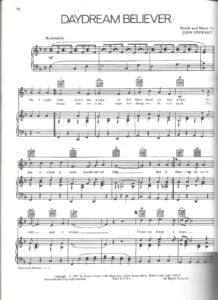 |
|
| Anne Murray Best Of Songbook Piano Vocal Guitar Chords |
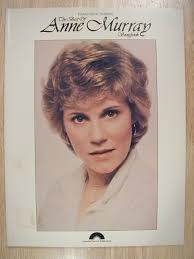 |
Anne Murray Best Of Songbook Piano Vocal Guitar Chords CONTENTS LIST |
| Anne Murray Could I Have This Dance Piano Vocal Musescore File.mscz | ||
| Anne Of Green Gables – Anne’s Theme |
 |
|
| Anne With An E – Marilla’s Theme | Anne With An E – Marilla’s Theme | |
| Annie Lennox The Best Of |
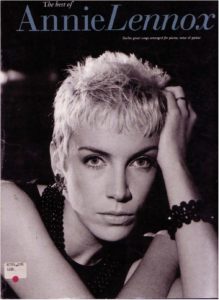 |
Anni Lennox best of songbook |
| Anohni – In My Dreams (piano Solo arr.) euphoria OST |
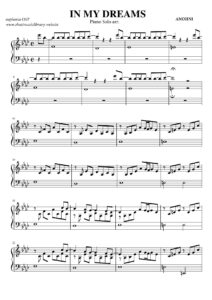 |
|
| Another Day In Paradise Phil Collins (Musescore File).mscz | ||
| Another Day of Sun – La La Land OST | ||
| Anouk – Girl | ||
| Anouk – Its a Shame | ||
| Anouk – My Life | ||
| Anouk – Nobodys Wife | ||
| Anoushiravan Rohani Fravorite Persian Pieces for piano Mid-level piano book |
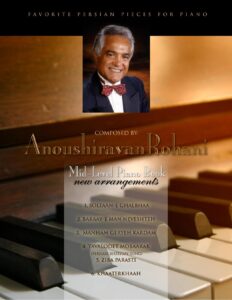 |
Anoushiravan Rohani Fravorite Persian Pieces for piano Mid-level piano book |
| Ansons S. – 6 easy pieces |
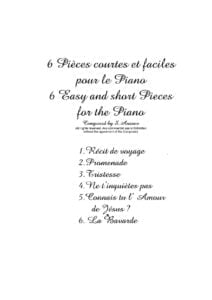 |
|
| Ansons, S. The harmonic garden part I – 24 short Jazz Piano solos |
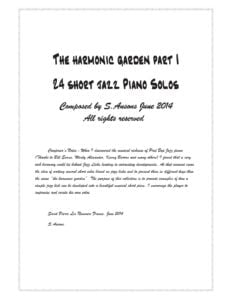 |
|
| Anthologie De La Chanson Française 1920 1950 Enrégistrée Book (Français) |
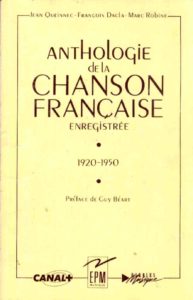 |
Anthologie de la chanson française |
| Anthology for Saxophone (arr. for Eb instr. by Andrea Cappilari) |
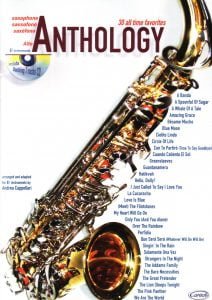 |
|
| Anthology Of American Piano Music Intermediate To Early Advanced Works By 31 Composers |
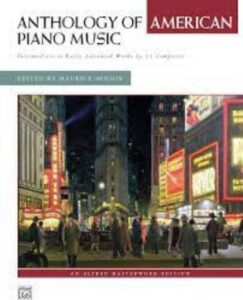 |
Anthology Of American Piano Music Intermediate To Early Advanced Works By 31 Composers |
| Anthology of American Song (26 songs collection by representative American Composers) |
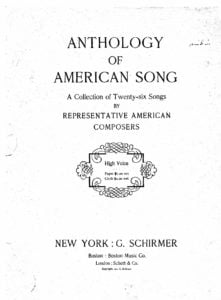 |
|
| Anthology Of Broadway Songs Gold Edition Songbook Piano Vocal Guitar chords |
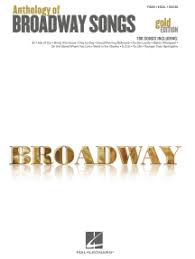 |
Anthology Of Broadway Songs Gold Edition Songbook Piano Vocal Guitar chords |
| Anthology Of Children’s Songs Gold Edition Songbook Piano Vocal Guitar chords |
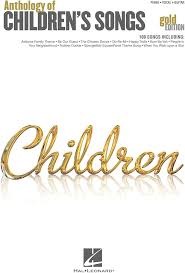 |
Anthology Of Childrens Songs Gold Edition Songbook Piano Vocal Guitar chords |
| Anthology of French Piano Music – Vol. 2 Modern Composers (1906) |
 |
|
| Anthology of French Piano Music by Isidor Philipp Vol. I (1906) |
 |
|
| Anthology of German Piano Music by Moritz Moszkowski (1908) Vol I Early Composers |
 |
Anthology of German Piano Music by Moritz Moszkowski (1908) Vol I Early Comp |
| Anthology of German Piano Music by Moritz Moszkowski (1908) Vol II Modern Composers | Anthology of German Piano Music by Moritz Moszkowski (1908) Vol II Modern Comp | |
| Anthology of Italian Song of 17th and 18th Cent. (1922) |
 |
|
| Anthology Of Modern Classics For The Piano (32 Compositions, Selected, Edited And Fingered) 1904 |
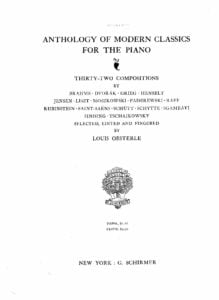 |
Anthology Of Modern Classics For The Piano (32 Compositions, Selected, Edited And Fingered) 1904 |
| Anthology of Modern French song (1912) 39 songs with piano accomp. |
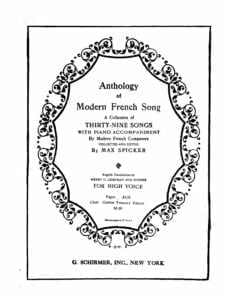 |
|
| Anthology Of Movie Songs Gold Edition Songbook Piano Vocal Guitar chords |
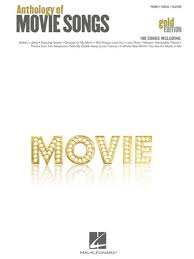 |
Anthology Of Movie Songs Gold Edition Songbook Piano Vocal Guitar chords |
| Anthology Of Post Tonal Music By Miguel A. Roig Francolí (Book) |
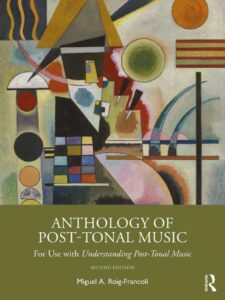 |
|
| Anthony Braxton Composition Opus 23 M |
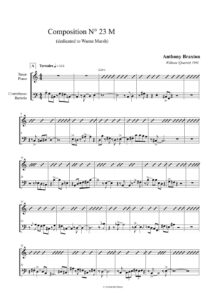 |
|
| Anthony Braxton Composition Opus 23D |
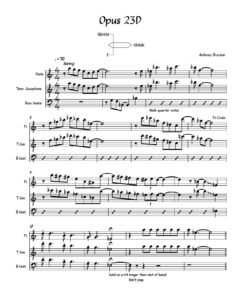 |
|
| Anthropology lead sheet.mscz | ||
| Anthropology Transcription – Sheila Jordan Charlie Parker.mscz | ||
| Anton Bruckner – Fantasy In G Major (Musescore File).mscz | ||
| Anton Rubinstein A Life In Music (Book) Biography by Philip S. Taylor |
 |
|
| Antonio Carlos Jobim Corcovado (Piano and vocal) | Antonio Carlos Jobim Corcovado (Piano and vocal) | |
| Antonio Carlos Jobim The Girl From Ipanema (Piano Solo) Garota De Ipanema | Antonio Carlos Jobim The Girl From Ipanema (Piano Solo) Garota De Ipanema | |
| Antonio Carlos Jobim The Girl From Ipanema (Piano Vocal) Garota De Ipanema | Antonio Carlos Jobim The Girl From Ipanema (Piano Vocal) Garota De Ipanema | |
| Antonio Carlos Jobim Triste (Guitar Solo Arr. With Tabs Sheet Music) | Antonio Carlos Jobim Triste (Guitar Solo Arr. With Tabs Sheet Music) | |
| Antonio Carlos Jobim – Agua De Beber | ||
| Antonio Carlos Jobim – Aguas de Março – Tom Jobim Easy Piano Solo arr | Antonio Carlos Jobim – Aguas de Março – Tom Jobim Easy Piano Solo arr | |
| Antonio Carlos Jobim – Aguas de Março – Tom Jobim Easy Piano Solo arr.mscx | ||
| Antonio Carlos Jobim – cancioneiro (piano,lyrics &guitar chords songbook) |
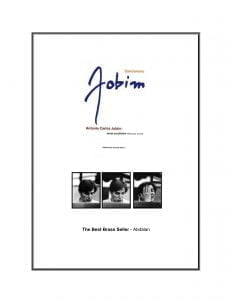 |
Antonio Carlos Jobim – cancioneiro (piano lyrics songbook) |
| Antonio Carlos Jobim – Corcovado (Musescore File).mscz | ||
| Antonio Carlos JOBIM – For bossa nova all styles (Guitar Tabs) |
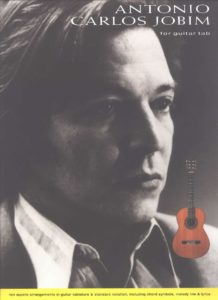 |
Antonio Carlos JOBIM – For bossa nova all styles |
| Antonio Carlos Jobim – Garota De Ipanema | ||
| Antonio Carlos Jobim – Jobim Cancioneiro Obras Completas |
 |
Antonio Carlos Jobim – Jobim Cancioneiro Obras Completas contents — Antonio Carlos Jobim – Jobim Cancioneiro Obras Completas |
| Antonio Carlos Jobim – Jobim Cancioneiro Obras Selectas (partituras) | Antonio Carlos Jobim – Jobim Cancioneiro Obras Selectas (partituras) |
Creation and development

Final Fantasy VII was scored by the series’ main composer Nobuo Uematsu
Nobuo Uematsu composed the music of Final Fantasy VII in less than one year, matching the game’s development time, although he had taken two years to create the soundtrack for the previous title, Final Fantasy VI. Final Fantasy VII was the first game in the series to be developed for the PlayStation, and while the media capabilities of the console allowed for pre-recorded Linear PCM (often as Red Book audio tracks on the CD), it was decided to generate the music in real time on the console instead, using samples and note data. This decision has been credited as giving the soundtrack “a very distinctive mood and feel”, forming a strong association for listeners between the game and its soundtrack.
Uematsu had initially planned to use vocal performances for the game to take advantage of the console’s capabilities, but found that the advanced audio quality required in turn made the game have much longer loading times in each area. Uematsu decided that the quality was not worth the effects on gameplay, though after the release and seeing Suikoden II (1998, PlayStation), which had used higher-quality music instead, he reversed his stance for Final Fantasy VIII. There was a plan to use a “famous vocalist” for the ending theme to the game as a “theme song” for the game, but time constraints and thematic concerns, caused the idea to be dropped. Uematsu has stated, however, that the move into the “PlayStation era”, which allowed video game composers to use sounds recorded in the studio rather than from synthesizers, had “definitely been the biggest change” to video game music.
Uematsu’s approach to composing the game’s music was to treat it like a film soundtrack and compose songs that reflected the mood of the scenes rather than trying to make strong melodies to “define the game”, as he felt that approach would come across too strong when placed alongside the game’s new 3D visuals. As an example, he composed the track intended for the scene in the game where Aerith Gainsborough is killed to be “sad but beautiful”, rather than more overtly emotional, creating what he feels is a more understated feeling. Uematsu has additionally said that the soundtrack has a feel of “realism”, which also prevented him from using “exorbitant, crazy music”.
The first piece that Uematsu composed for the game was the opening theme; game director Yoshinori Kitase showed him the opening cinematic to the game and asked him to begin the project there. The track was well received in the company, which gave Uematsu “a sense that it was going to be a really good project”. He later stated in the liner notes for the soundtrack album that the music for Final Fantasy VII was his “greatest harvest” to date.
Final Fantasy VII was the first game in the series to include a track with digitized vocals, “One-Winged Angel”. The track has been called Uematsu’s “most recognizable contribution” to the music of the Final Fantasy series, though the composer did not expect it to gain such popularity. The piece, described as “a fanfare to impending doom”, is said to not “follow any normal genre rules” and has been termed “possibly the most innovative idea in the series’ musical history”.
Uematsu approached the piece, which accompanies the final battle of the game, in a different manner than previous “boss tracks”: as he felt that using his normal approach would cause unfavorable comparisons to his well-received Final Fantasy VI boss tracks, he instead tried to take a different approach. Inspired by The Rite of Spring by Igor Stravinsky to make a more “classical” track, and by rock and roll music from the late 1960s and early 1970s to make an orchestral track with a “destructive impact”, he spent two weeks composing short unconnected musical phrases, and then arranged them together into a song, an approach he has never used before or since.
The lyrics of “One-Winged Angel”, a Latin choral track that plays at the climax of the game, were taken from the medieval poetry that forms the basis of Carl Orff‘s Carmina Burana, specifically “Estuans Interius”, “O Fortuna“, “Veni, Veni, Venias” and “Ave Formosissima”. Uematsu has stated that the intro of “One-Winged Angel” is based on Jimi Hendrix‘s “Purple Haze“, that the piece revolves around the image of Sephiroth, and that despite the chorus and orchestra, he still thinks of it as a “rock piece”. He said in a 2005 interview that “One-Winged Angel” is his favorite tune from the soundtrack, and in 2004 that it was his favorite battle theme from any Final Fantasy game.
Final Fantasy VII Albums
Original Soundtrack
Final Fantasy VII Original Soundtrack is a soundtrack album containing musical tracks from the game, composed by Nobuo Uematsu and produced by Uematsu and Minoru Akao. It was originally released on February 10, 1997 through DigiCube and later reissued directly by Square Enix on May 10, 2004. The soundtrack spans 85 tracks over four discs and has a combined duration of 4:39:53. A limited edition was produced along with the original album, containing illustrated liner notes with several pictures of Uematsu’s workspace and personal effects, various cutscenes and in-game screenshots from the game, and a discography.
The soundtrack covers a wide variety of musical genres, including rock, techno, orchestral, and choral, although the soundtrack as a whole is primarily orchestral. While many of the tracks were intended as background music, reviewers noted the emotional intensity of several tracks, especially “Aerith’s Theme”, which plays during a moment described as “the most shocking moment in video games,” and has been described as the most memorable track from the album. The theme has become popular among fans, and has inspired various arrangements. Other notable tracks include “Main Theme of Final Fantasy VII”. Themes from this track play during several other tunes from the soundtrack, such as “Words Drowned by Fireworks”, to tie the soundtrack together.
The regular edition of the album reached No. 3 on the Japan Oricon charts, while the limited edition reached No. 19. Overall, the album sold 148,000 copies as of January 2010, with the limited edition selling a further 21,000. The album was well received by critics. Allmusic awarded Uematsu’s original soundtrack a five-star rating.
Ben Schweitzer of RPGFan claimed that “for the most part, it’s a diamond”, with his primary complaint being the quality of the MIDI sound. He found the tracks to be “beautiful” and said that “One-Winged Angel” was “possibly the most innovative idea in the series’ musical history”.
Patrick Gann of RPGFan concurred and found all of the soundtrack’s tunes to be “memorable” and the Original Soundtrack to be “very worth the purchase”. Philip of Square Enix Music Online, however, disliked the sound quality of the soundtrack and saw several tracks as “trivial”, though he did note that Uematsu “has a flair for strong, memorable” pieces. In 2006, IGN ranked the album as the best Final Fantasy soundtrack to date and cited the “gripping” character themes and “One-Winged Angel” in particular as contributing factors. They also named “One-Winged Angel” as the best piece of music from the entire Final Fantasy series.
The original CDs for both releases were only published in Japan and include only Japanese track names. The official English track names were later added to digital releases of the soundtrack.
